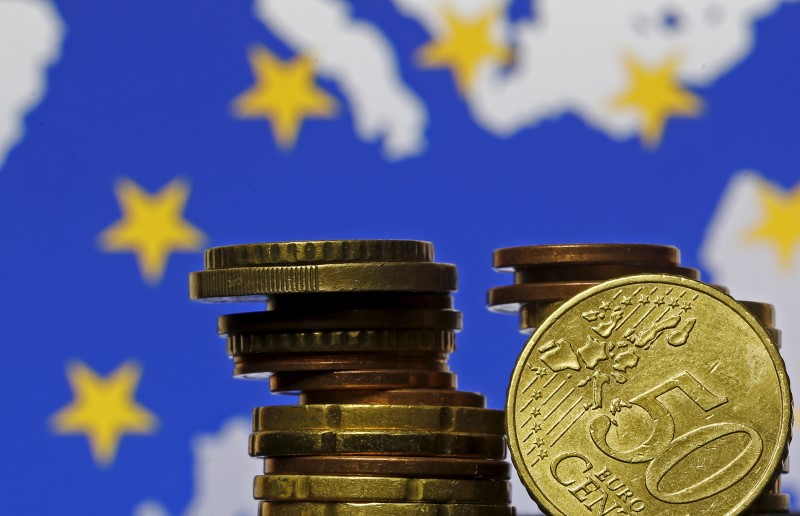By Ross Finley
LONDON (Reuters) - Euro zone economic growth halved in the second quarter to a modest pace, as a mild slowdown in Germany was overshadowed by a surprise stagnation in Italy, offering scant hope of a decisive rebound for the currency bloc as a whole any time soon.
The 0.3 percent quarterly expansion, or 1.6 percent annual pace, matched expectations in a Reuters poll of economists and showed the euro zone already slowing ahead of Britain's shock June 23 vote to leave the European Union.
While there have been no clear signs in survey data of an economic hit outside of Britain since the vote, the official data showed that a burst of activity at the start of the year was fleeting and more stimulus may still be required.
"The question remains if even this lower growth rate can be sustained in Q3," wrote ING Senior Economist Bert Colijn.
"With Brexit uncertainty weighing on exports and industrial weakness, it seems that the consumer has to carry a lot of the weight of the euro zone expansion on its shoulders."
There is also little sign of any broad improvement around the corner, a Reuters poll showed on Thursday. [ECILT/EU]
The challenge for policymakers, both at the European Central Bank and in member economies which are reluctant to or restrained from opening the fiscal taps for stimulus, is that growth rates across the euro zone are now varying widely.
In the biggest economy, Germany, gross domestic product grew 0.4 percent, double the 0.2 percent expected in a Reuters poll and marking a 3.1 percent pace compared with the same period last year - the strongest annual figure in five years.
While slower than the start of 2016, growth was boosted by exports as well as consumer spending, putting Germany's performance and prospects ahead of many of its peers.
So while the euro zone figures as a whole broadly support continued stimulus from the European Central Bank, which has cut its deposit rate to -0.4 percent and is buying 80 billion euros of mainly government securities a month among other measures, they don't appear to be so necessary for Germany.
KfW bank economist Joerg Zeuner said Britain's vote to leave the EU would eventually hurt, however.
"The decision to leave the EU will hit the British economy, and the slowdown will spread to Germany through muted exports," he said. "The UK is an important market, especially for German car makers, but also for our chemical and pharmaceutical industries."
In Italy, the euro zone's third-largest economy, there was no growth at all in the second quarter, as industry and domestic demand flagged.
The unexpectedly poor performance comes soon after Italy emerged last year from its worst recession since World War Two and will pile pressure on Prime Minister Matteo Renzi, who has staked his credibility on turning the country around.
"With weakening exports...increasing uncertainty related to the political backdrop and the situation of the banks, and previous declines in share prices possibly causing negative wealth effects and hitting confidence levels, we reckon there is little room for much upside in growth momentum in H2 16," noted economists at Citi.
Preliminary data for France, the second-biggest euro zone economy, reported late in July showed no growth either.
"Against this backdrop, and with few signs that governments are about the loosen the fiscal reins, the onus remains on the ECB to provide the additional support needed to boost the recovery and push inflation back up towards its target," noted Capital Economics' chief European economist Jonathan Loynes.
In the Netherlands, the picture was much better, with 0.6 percent growth in the second quarter, driven by services as well as decent domestic demand, particularly in housing, and export performance.
Previously reported early Q2 data for Spain showed 0.7 percent growth.
Economic growth even picked up in Greece to 0.3 percent on resurgent tourism, an improvement on the first quarter, when the economy shrank by a revised 0.1 percent.

Outside the euro zone, in Poland - the biggest economy in eastern Europe - growth in the second quarter picked up slightly to 3.1 percent on an annual basis, matching the German rate of expansion.